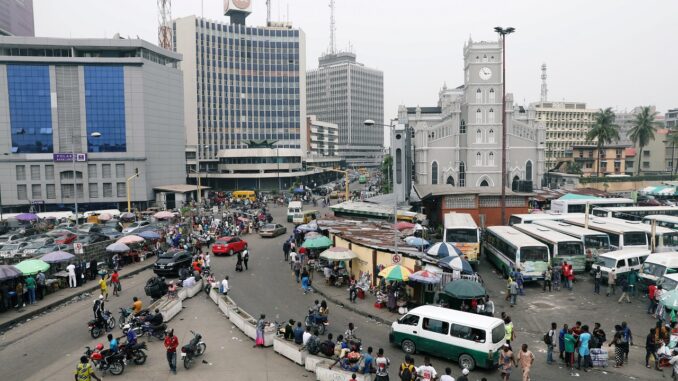
Besides the arbitrary official exchange rate, there exist(ed) autonomous exchange rate, interbank forex rate, wholesale Dutch auction system rate, retail Dutch auction system rate, etc, all of which are/ were artificial. To access forex down the years invariably required depreciating the naira more than other prospective forex buyers. Even government which had dollars to sell got devalued rates from CBN. Section 3.1.1 of the 2022-24 MTEF&FSP attests thus: “Oil and gas revenue were monetised ( that is, using CBN fiat printed funds) at a higher rate than the 2020 budget benchmark –an outcome of an agreement between the fiscal and monetary authorities, which required dollar earnings to be exchanged at two per cent less the import & export window rate.’’ Note that the (I&E) rate itself is arbitrary and artificial. Also section 9.3 of the above document gives the official exchange rate as N410.15/US$1. And following further arbitrary adjustment by CBN in contempt of the 2022 Budget exchange rate barely six days into the fiscal year, the current exchange rate stands at N413.96/$1. That rate represents a devaluation/depreciation of 69.80 per cent from the proposed SAN take-off rate earlier indicated. Yet the apex bank claims that its routine interventions in the forex market segments are aimed at defending the value of the naira!
In the light of the foregoing, it is pertinent to stress for deep reflection by the fiscal and monetary authorities the implication of deficit monetisation of Federation Account oil dollars with CBN fiat printed naira funds at artificial (arbitrary) exchange rate. The improper procedure is akin to using apex bank ways and means (W&M) debt funding to replace the total Federation Account dollar accruals meant for the budgets of the tiers of government. Contrary to the provisions of the CBN Act, the W&M funds have not been retired or repaid throughout the years. So considering FA oil accruals from 1975 have accounted for over 50 per cent of the annual budgets of the tiers of government on paper, an estimate of the cumulative W&M debt funding over the past 46 years would exceed 100 per cent of the latest available full year GDP.
In effect, Nigeria has long surpassed her debt sustainability limit. The IMF and World Bank would not point out this fact because a wobbly Nigeria economy best serves their hegemonic interest. Yet, self-deludingly, as self–serving and forced justification to continue to contract new domestic and external borrowings, the Budget Office of the Federation claims (a) falsely at section 7.2.4 of the above cited document that “total public debt will be kept within our self-imposed debt sustainability threshold of 40 per cent of GDP” and (b) erroneously at section 8.1.1 that Nigeria’s total public debt stock as at December 31, 2020 was N32.92 trillion.’’ Such official unreason amounts to a disservice to the Nigerian people. Having surpassed the debt sustainability limit by disobeying best practice monetary procedure at the instance of the ex- military regime, the present government should mend its ways and serve the national interest. To adopt best practice method by correctly implementing a market determined naira exchange rate system would make it possible to balance the budget or even perform better by using the amply available but thus far mismanaged resources. Fiscal deficits (if need be) would easily be kept within the ceiling contained in the FRA and the Appropriation Act. That way, the existing national domestic debt, which has been purposely accumulated to benefit unpatriotic elements and their foreign accomplices, may be rationalised. Indeed, the attendant fast and strong economic growth would ensure rapid development.
Four, the permanent suspension of SAN has scuttled the promise of low inflations and stable prices. For example, inflation shot up to 18.17 per cent in March 2021. Section 2.2.2 of the BOF document already cited states as follows,’’ Inflation is currently about 100 per cent above CBN’s nine per cent target threshold’’ The high CBN substituted fiscal deficits are the source of the high inflation from the mid-1980s till date. CBN data over the period put the inflation-influenced average prime lending rates and maximum lending rates between 14 per cent and 32 per cent. The foregoing officially attests to the fact that the level of inflation is several times the range of 0-3 per cent inflation, which the CBN Act, the Fiscal Responsibility Act and the Appropriation Act implicitly prescribe for the sake of national economic good health. Instructively, the 0-3 per cent inflation range provides the basis for the apex bank to set a positive minimum discount rate closely above the low inflation rate. Consequently, business production-friendly and internationally competitive single digit positive lending rates ranging from 4.0 per cent to 7.0 per cent would evolve.
Five, the absence of SAN has turned open and massive looting of the FG treasury into a lucrative private business occupation. The CBN-substituted high fiscal deficits bred excess liquidity and volatile macroeconomic environment. As noted earlier, the associated high inflation gave rise to high interest rate regime. From the least expected angle, the CBN, egged on by the Bretton Woods institutions, proceeded to open the sluice gates for swindlers to loot the federal treasury. Under the aegis of the Debt Management Office (an apex bank-created special purpose vehicle, so to speak), a gigantic and ever-growing high interest cost national domestic debt began to pile up from 2003. It has turned out to be the veritable scam for draining away the bulk of FG naira revenue. To similarly siphon away FG dollar revenue, as high oil prices flowed into the government kitty, part of the humongous national domestic naira debt was refinanced in dollars under the pretext that dollar denominated debts attracted lower interest rates than naira loans. However, given proper implementation of SAN, the resulting low fiscal deficit, balanced and /or surplus budgets would drive down inflation and attendant financial system lending rates across the board for the benefit of domestic transactions.
To be continued tomorrow.
END

Be the first to comment